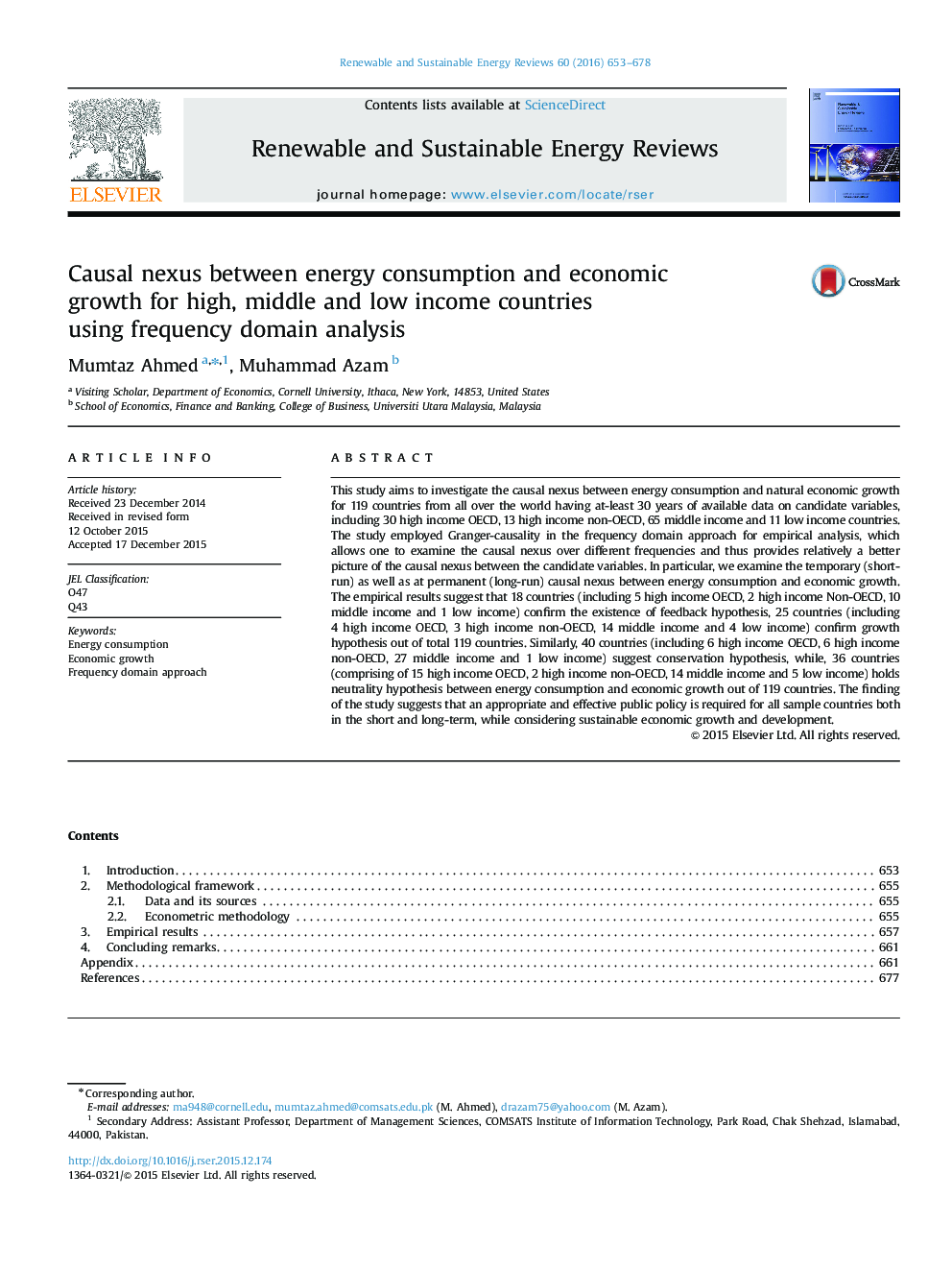| Article ID | Journal | Published Year | Pages | File Type |
|---|---|---|---|---|
| 8114012 | Renewable and Sustainable Energy Reviews | 2016 | 26 Pages |
Abstract
This study aims to investigate the causal nexus between energy consumption and economic growth for 119 countries from all over the world having at-least 30 years of available data on candidate variables, including 30 high income OECD, 13 high income non-OECD, 65 middle income and 11 low income countries. The study employs Granger-causality in the frequency domain context for empirical analysis, which allows one to examine the causal nexus over different frequencies and thus provides relatively a better picture of the causal nexus between the candidate variables. In particular, we examine the temporary (short-run) as well as at permanent (long-run) causal nexus between energy consumption and economic growth. The empirical results suggest that 18 countries (including 5 high income OECD, 2 high income Non-OECD, 10 middle income and 1 low income) confirm the existence of feedback hypothesis, 25 countries (including 4 high income OECD, 3 high income non-OECD, 14 middle income and 4 low income) confirm growth hypothesis out of total 119 countries. Similarly, 40 countries (including 6 high income OECD, 6 high income non-OECD, 27 middle income and 1 low income) suggest conservation hypothesis, while, 36 countries (comprising of 15 high income OECD, 2 high income non-OECD, 14 middle income and 5 low income) hold neutrality hypothesis between energy consumption and economic growth out of 119 countries. The findings of the study suggest that an appropriate and effective public policy is required for all sample countries both in the short and long-term, while considering sustainable economic growth and development.
Related Topics
Physical Sciences and Engineering
Energy
Renewable Energy, Sustainability and the Environment
Authors
Mumtaz Ahmed, Muhammad Azam,
